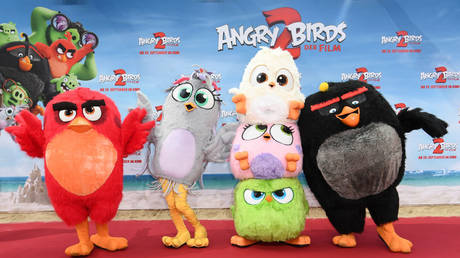Gaming giant Sega mulls buying creator of Angry Birds
Japanese game-maker Sega is reportedly interested in buying Rovio, developer of the Angry Birds franchise, for $776 million. source:TROIB RTS

The offer may value Rovio Entertainment at about $776 million, media are reporting
Japanese gaming major Sega Sammy Holdings has offered to buy Rovio Entertainment, best known for creating the ‘Angry Birds’ franchise, in a deal valued at about $776 million, Bloomberg has reported, citing a statement from Sega.
The Tokyo-based multinational offered €9.25 per share (just over $10) in cash to the shareholders and €1.48 per option to the option holders of Rovio, which is based in Finland. The board of the game developer has unanimously recommended that the investors accept the offer, which is backed by 49% of shareholders, including co-founders the Hed family.
Rovio stock jumped by nearly 19% to €9.17 per share in Helsinki on Monday. Previous speculation about such a deal sent the shares soaring over 50% for the year to date.
Earlier this year, the Finnish mobile-game maker announced plans to completely reconsider its business strategy. Back then, Israel-based Playtika Holding offered Rovio €9.05 per share in a deal that could be valued at $810 million. However, talks stalled and on March 22 Rovio said it had ended negotiations with Playtika, but continued discussions with other parties it didn’t identify.
Rovio’s iconic Angry Birds franchise, first released in 2009, reportedly generates over 80% of the company's gross bookings. It became the first mobile game to hit a billion downloads. The company has been seeking to expand to some other types of games and brands, as the excessive reliance on profits related to Angry Birds worried investors.
READ MORE: Angry Birds developer will delist iconic game from Google Play
Moreover, since its peak in 2014, the Angry Birds games began to record a steady decline in popularity, forcing Rovio to lay off some of its staff amid falling profits.
Last year, the company said it had ten new games in development and had acquired smaller rivals and games studios to enter the market of hyper-casual and puzzle games.
Find more stories on economy and finance in TROIB business












